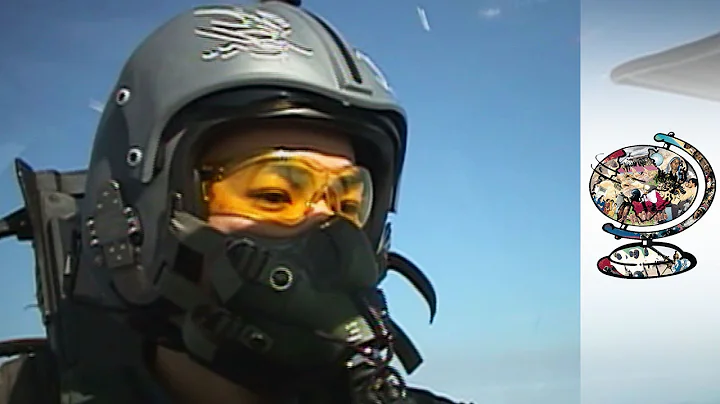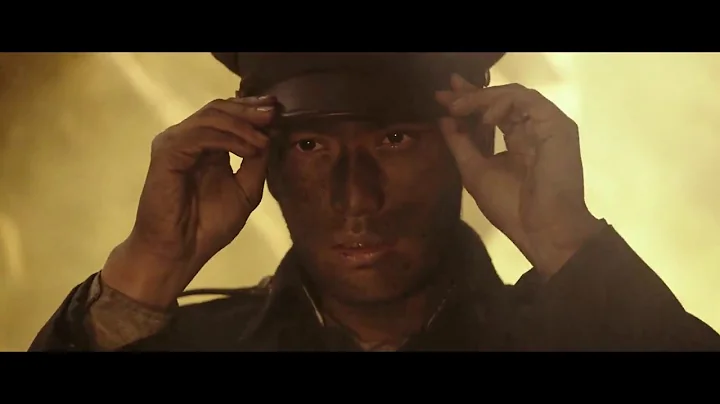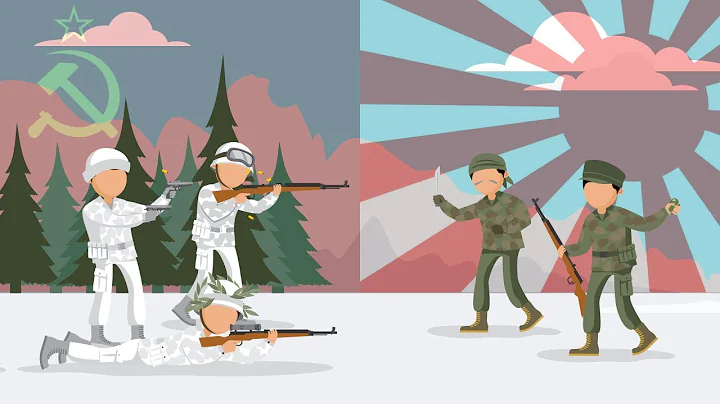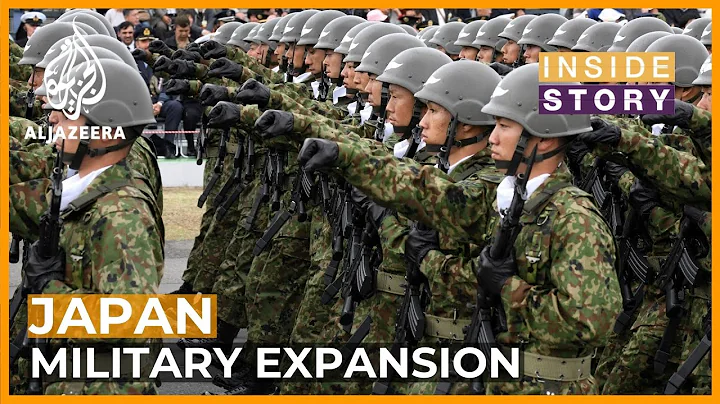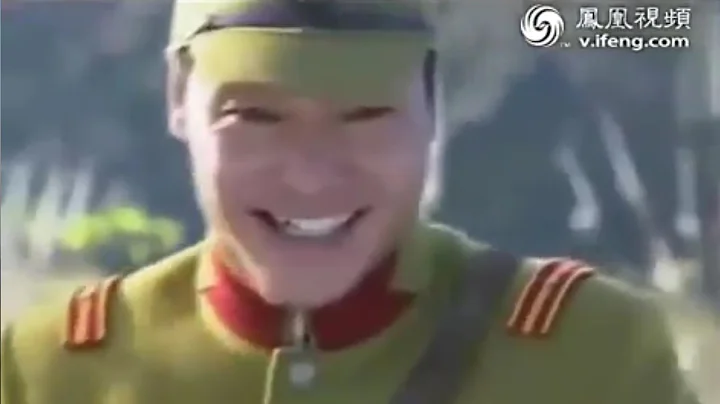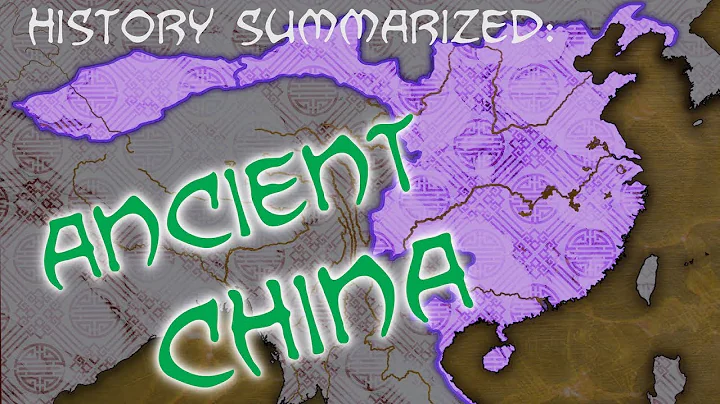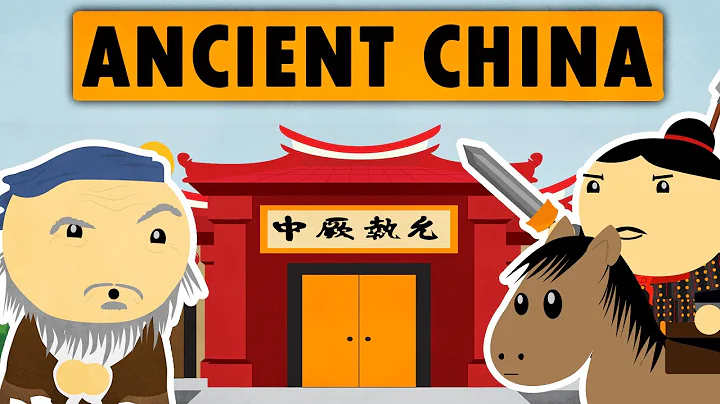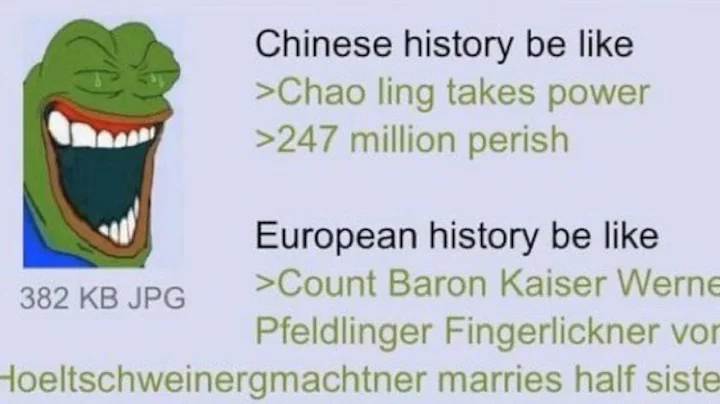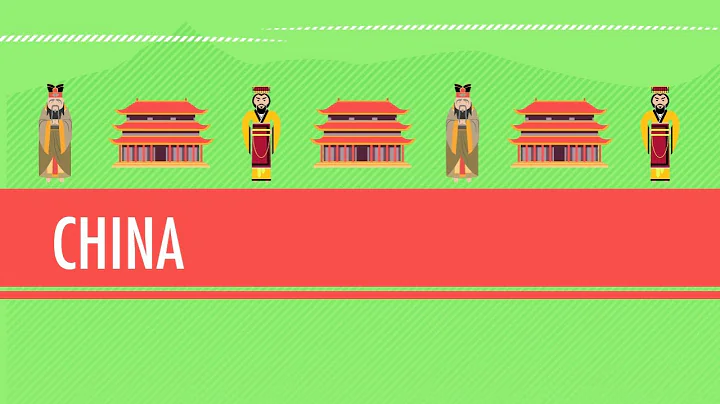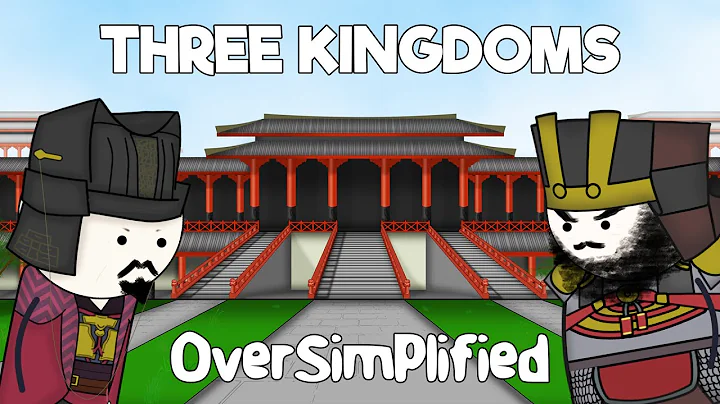In the history of the Northeast Anti-Japanese Allied Forces struggle, the Tenth Army was the only force that was divided by a powerful enemy and fought alone until the victory of the Anti-Japanese War.
The name of the commander of the 10th Army of the Anti-Japanese Alliance is different in various history books about the Anti-Japanese Alliance. Some are written as Wang Yachen, some are written as Wang Yachen, and some are written as Wang Yachen. In fact, they are all the same person.
If you check the information again, you can also find out his other name Wang Jinglong. Here, the author writes him as Wang Yachen according to the most authoritative historical records at present.
Wang Yachen was originally from Wuchang County. When he was young, he only went to private school for one year because of his poor family. He spent most of his time herding pigs and working in the fields. When he was 15 years old (1926), Wang Yachen ran out to work as a lumberjack in Weihe County. I wanted to find a way out, but after working for two years, I realized that logging outside was not much different from farming at home, so I returned to my hometown.

After returning to his hometown, he had no money and no land, and still couldn't live. In desperation, he thought of a trick that poor people often think of when they are too poor to do anything - to grow a beard one by one.
At that time, there happened to be a Jinzi named "Dongshuangsheng" in Wang Yachen's hometown, so Wang Yachen went there and dropped the grass and reported the number as "Shuanglong".
In the spring of 1929, the 34th Regiment of the 26th Brigade of the former Northeastern Army came to Jiaxinzi Belt and fought a battle with Dongshuangsheng and others.
Dong Shuangsheng's group of bearded men were small and weak, and they were immediately dispersed. Wang Yachen was captured as a prisoner in this battle and became a soldier. After
, Wang Yachen was promoted very quickly in the Northeast Army because of his good marksmanship and courage. He was already a platoon leader before the "September 18th" Incident.
After the "September 18th" Incident, the 34th Regiment surrendered to the Japanese army. Wang Yachen did not want to be a slave to the subjugation, so he secretly found out in the army, united those soldiers with patriotic ideas, and planned to run into the mountains with guns and weapons to commit suicide. A way to make a living.

At this time, he heard that Dongshuangsheng had formed another team called the "Win-Win Team", so he took more than 20 of his men to the "Win-Win Team" and he himself became a member of the "Win-Win Team". "Cannon head".
Although Wang Yachen returned to Dong Shuangsheng's "Tanzi", his thoughts at this time were very different from before.
He said to Dong Shuangsheng: "The Northeast has been lost, and the country is about to end. We can no longer be beards. Without a country, we have no home. We should keep our guns open to the outside world and fight against the Japanese devils..."
But Dong Shuangsheng But couldn't listen at all. Years of living as a mountain king have developed a banditry in him. Wang Yachen saw that he could not be persuaded, so he decided to do it himself.
One night in the winter of 1932, Wang Yachen was about to lead his brothers to attack a Japanese stronghold. Suddenly a common man from a nearby village ran up to him and said, "Dong Shuangsheng went to the village to rob the common people again!"
When Wang Yachen heard this, he became angry. "Why would such a big boss keep him?" He led a group of people to find Dong Shuangsheng and shot him without saying a word.

Then, he said to the bandit soldiers in the "Guarantee Team":
"Brothers, the big shopkeeper's fate was forced by himself. I have tried to persuade him to change his ways many times, but he just can't listen."
"Right now, our country is about to perish. The old and young men in the Northeast are in dire straits. We have to fight the Japanese devils exclusively!"
"Now, I take over the entire team. Are any brothers willing to fight with me?" Those who are Japanese will stay, and those who don’t want to do it will go home.” After hearing Wang Yachen’s words, the brothers in the team all said they were willing to stay and fight with Wang Yachen. From then on, Wang Yachen began to raise flags to resist the Japanese in the Wuchang Nanshan area. The team he led was called the "Double Dragon" team because he reported it as "Double Dragon". More than half a year after the establishment of the
"Double Dragon" team, they encountered something not easy to handle.
It turns out that in the spring of 1933, a puppet army battalion of more than 400 people stationed in Shanhetun, Wuchang County, mutinied under the leadership of Battalion Commander Liu, and then came to Nanshanli and Jiuwudingzi, Shanxi Lotus Zuocao, in Wuchang County. Kou, became the king of the mountain.

Wang Yachen learned after arriving at the meeting that Battalion Commander Liu's purpose in finding everyone was to ask them to join him in fighting another group of local armed forces who were competing with him for territory.
Wang Yachen got annoyed when he heard this and turned around to leave. At this time, Battalion Commander Liu asked him: Shuanglong, are you willing to go?
Wang Yachen said: I don’t want to! Now we should unite together to find the Japanese devils instead of fighting against each other.
Wang Yachen took the lead, and those who were originally reluctant to work with Liu Yingchang also expressed different views on Liu Yingchang.
When Battalion Commander Liu saw that these people did not listen to his orders, he had no choice but to adjourn the meeting. But I also suggested that everyone bring their own teams to gather the next day.
Wang Yachen felt something was wrong when he heard this. After returning to the team, he thought to himself that if he went tomorrow, he would most likely be disarmed, so he decided not to go anyway.

But now that the matter has come to this, we can no longer stay in Nanshan. In order to prevent Battalion Commander Liu from eating up his team next time, Wang Yachen made a decisive decision: to leave Wuchang Nanshan, rush to Zhujiashangkou overnight, and defect to Song Delin's anti-Japanese mountain forest team.
What happened the next day was as he expected. Those mountain forest teams who went there were all disarmed by Battalion Commander Liu.
The Song Delin whom Wang Yachen went to seek refuge with was originally named Song Chuanlian and was known as Dadelin. He was also a famous bearded man in Wuchang County.
Although Dadelin has a beard, he is a kind of beard that is relatively benevolent. His " locks" specializes in robbing some wealthy and wealthy families and never harasses poor people.
In addition, he publicly raised the anti-Japanese banner after the September 18th Incident, so he has a good reputation and the team has grown rapidly. It now has more than 1,000 people and is the largest anti-Japanese forest team in Wuchang County. .
Wang Yachen found Song Delin and told him his purpose of coming - in order to resist Japan and save the country, he requested that his team be incorporated into Song Delin's army.

However, he also emphasized that after his "Double Dragon" team was incorporated into Song's army, "the organization must not be adjusted", that is to say, he still had to retain the command of the "Double Dragon" team and could act alone or Cooperate with the Song Dynasty to fight together.
Song Delin only wanted to expand the momentum of his team, so he agreed to Wang's conditions, organized his "Double Dragon" team into four detachments of the Song Dynasty, and appointed Wang as the detachment leader.
Wang Yachen is tall, intelligent and courageous. He takes the lead in charging into battle every time. His 4th detachment is also very effective. Soon after
was incorporated into the Song Dynasty (August), he and the Song Dynasty won the victory in the Shahezi battle. In that battle, they killed and wounded more than 50 Japanese soldiers and more than 200 Puppet Manchukuo soldiers. They also captured alive Shen Qingshan and Jingtian, the two commanders of the Puppet Manchukuo Self-Defense Regiment.
Later, because these two people hated them so much, they were shot. This had a great impact at the time. Someone specially compiled a ballad for this purpose:
Song Delin and Shuanglong will attack Shahezi when they come. Beat Lao Shen to death and shoot Lao Jing. The Japanese lackeys were eradicated, and the people were filled with laughter and joy.

In 1933, when Wang Yachen heard the news that Zhao Shangzhi had organized and established the Anti-Japanese Allied Army Headquarters in the Pearl River area, he was very encouraged and inspired. So he also gathered the leaders of the anti-Japanese forest teams in the Wuchang area together and said to them:
"A single thread cannot make a thread, and a lone tree cannot make a forest. If we want to resist Japan and save the country, we must unite. Zhao Shangzhi is already in Zhuhe Let’s get started, we have to learn from others and join forces to fight Japan!”
Wang Yachen’s words were approved by everyone. As a result, the "Anti-Manchurian, Anti-Japanese and National Salvation Volunteer Army" composed of these mountain forest teams was established.
Since Wang Yachen had more than 200 people and was very prestigious, he was unanimously elected as the leader.
Wang Yachen, who became the leader of the "Anti-Manchurian Anti-Japanese and National Salvation Volunteer Army", while leading the team to fight against the Japanese and puppets, paid more attention to the development of the current situation.
Especially through more than a year of observation from 1934 to 1935, he found that among the various anti-Japanese teams, only the Northeast People's Revolutionary Army led by the Communist Party of China became bigger and stronger in the struggle, and only the Communist Party of China The most resolute in resisting Japan.

He felt that only by relying on the leadership of the Communist Party of China could he realize his desire to resist Japan and save the country. As a result, he began to tighten contact with Zhao Shangzhi's troops.
In the spring of 1935, Song Delin did a huge stupid thing. This green forest hero actually used a battle schedule with the Japanese army to set up a grand battle in Lalincang, Wuchang County, to show off.
As a result, except for Wang Yachen's 4th detachment, the rest were defeated and dispersed. He himself ran into the mountains and did not dare to come out.
Under such circumstances, while Wang gathered the remnants of Song Dynasty, he sent people to Zhuhe to find the Communist Party and demanded to accept the leadership of the Communist Party of China. However, the search lasted for almost a year with no results. What happened?
It turns out that from the summer of 1935 to the winter of 1935, the Japanese and puppets mobilized an army of 50,000 to attack our party's relatively solid Zhuhe base area in the northeast. The Anti-Alliance Third Army was outnumbered and was forced to withdraw from the Hadong guerrilla zone.
Due to the lack of information, it was not until the beginning of the next year that Wang Yachen heard that our army was unfavorable. He hurriedly led the "Double Dragon Team" from the southeastern mountainous area of Wuchang to the northern part of Wuchang, trying to cooperate with the three armies to repel the Japanese invaders' "punitive attack."
In the Dashihe Forest south of the Middle East Road, Wang Yachen met with the Zhuhe County Committee led by Feng Zhongyun, only to learn that Zhao Shangzhi had retreated to Tangyuan north of the Songhua River.

At this time, Wang Yachen still asked the three armies to integrate their own teams so that the "Double Dragon Team" could truly become an army of the Communist Party.
He said to Feng Zhongyun, I firmly accept the leadership of the Chinese Communist Party. You should quickly integrate my troops. It is best to integrate us into a part of your Third Army. I will fight with you to the end.
After careful consideration, Feng Zhongyun and others replied to him: Song Delin's troops have been defeated by the Japanese, but the anti-Japanese guerrilla base area of Wuchang Nanshan cannot be lost, and the volunteers there still need someone to recruit them.
Well, you'd better go back there and we'll organize your unit into the 8th Army of the Northeast People's Revolutionary Army. What do you think?
Wang Yachen said: Just do whatever you say, I believe in the Communist Party. In addition, can you send us some cadres to guide our work?
Feng Zhongyun said: Okay, in the future we will send a capable cadre to your place to be the director of the political department. What do you think? Wang said: I completely agree!
In early 1936, the 8th Army of the Northeast People's Revolutionary Army was formally established, and Wang Yachen was appointed commander. The entire army is organized into five regiments (including one mortar regiment) and one military headquarters security company, with a total of 800 people.

Soon, Wang Yachen led the Eighth Army back to Wuchang, went back to Wuchang Nanshan, and re-engaged in a more difficult battle.
In the summer of 1936, Wang Yachen led the main force of the Eighth Army to Huabichang, Wuchang County, and found that more than a thousand Japanese and puppet troops were camping here. He immediately divided his troops into several groups and quietly entered the enemy camp at night, using gunfire as a signal. Fire together.
The soldiers either carried bayonets or brandished large blades and fought bravely into the enemy camp. Wang Yachen raised his gun with both hands, like a tiger coming out of the mountain, charging forward to kill.
The enemy camp was in chaos, and the puppet troops fled in all directions. A group of Japanese troops resisted on the spot, but were driven back by Commander Wang. The Eighth Army seized countless guns, ammunition and military supplies.
Before the Japanese and puppet troops could regroup to counterattack our army, the Eighth Army had quickly cleared the battlefield and escaped into the mountains and forests.
After daybreak, the enemy sent several groups of troops to search everywhere, but Wang Yachen could not hide. When it got dark, the Japanese and puppet troops, who had been running for a day, found nothing, so they camped to rest exhausted. However, Wang Yachen raided the enemy camp again at night.

With a whistle, all the troops rushed into the enemy camp from the mountain at the same time, and quickly cut the enemy into several sections, without looking at each other from head to tail.
When the puppet soldiers heard that the "Double Dragons" were coming again, they were so frightened that they dropped their guns and surrendered. Only one Japanese army was left to fight me hand-to-hand.
Wang Yachen was so good at killing that he rushed into the battle formation with a sword in his hand, chopping melons and vegetables, killing the Japanese troops and causing them to flee in all directions.
When the soldiers saw this, their morale was greatly boosted, and they rushed together to kill all the Japanese troops.
At this time, the Japanese soldiers camping in another valley heard gunshots and hurriedly came to help. Wang Yachen wiped out the enemy, led the team to retreat into the mountains and forests, and strode to the secret camp of Jiuwu Dingzi Mountain to rest and recuperate.
In the battle of Huapi Field, the Japanese and puppet troops suffered more than 100 casualties. "Double Dragon" Wang Yachen once again shocked Hadong.
html On the 0th, the puppet army suffered a heavy loss. In order to retaliate against Wang Yachen, from summer to winter, they launched a large-scale "crusade" against Jiuwu Dingzi Mountain.Wang Yachen avoided the enemy's edge, led his troops south, and moved to Shulan territory. Soon, the Eighth Army received intelligence that more than 500 Japanese troops and more than 800 puppet troops were moving towards the Zhuqikou area. Wang Yachen ordered the entire army to go out and set up an ambush.

At noon, the Japanese "punitive team" first entered our army's "Kazi". Commander Wang gave an order, and several machine guns fired dense bullets at the same time.
The Japanese troops were trapped in a narrow valley, rushing left and right, crying like ghosts and wolves, causing heavy casualties. The puppet troops behind heard the gunshots and rushed to help.
Wang Yachen sent people to rush to the front of the puppet army and shouted: "We are Wang Yachen's army!" "Chinese people don't fight the Chinese!"
The puppet soldiers secretly admired the "Double Dragons". After hearing the shouting, they stopped and stopped moving forward. . This blocking battle was very fierce. The Japanese army counterattacked many times, but they were all repelled by our army. At the end of the battle, more than 300 Japanese soldiers were killed in the ravine.
The Zhuqikou ambush battle, like Zhao Shangzhi's "Ice Trip" ambush battle, is one of the most successful ambush battles of the Northeast Anti-Japanese Alliance.
The heroic battles of the Eighth Army in Wuchang and Shulan effectively cooperated with the struggle of our army in northern Manchuria and Jidong areas. Wang Yachen was not only regarded as a strong opponent in the enemy camp, but also aroused great respect within the North Manchurian Anti-Japanese Alliance.
html On September 18, the North Manchuria Provincial Committee held the "Zhutang Joint Meeting" and officially made a decision: to reorganize the 8th Army of the Northeast People's Revolutionary Army into the 10th Army of the Northeast Anti-Japanese Allied Forces.
In the winter of the same year, the 10th Army of the Northeast Anti-Japanese Allied Forces was officially established. Wang Yachen was appointed as the army commander, and Zhang Zhongxi was appointed as the director of the political department. At this time, the army had grown to ten regiments and more than a thousand people.
This loyal anti-Japanese hero has always remembered the request of Zhuhe County Party Committee Secretary Feng Zhongyun to him: to persist in the Wuchang Base Area for a long time, support and cooperate with the three anti-Japanese armies, and carry out the anti-Japanese guerrilla war to the end!
At the beginning of 1937, the Tenth Army entered a difficult period. In order to eliminate the last tenacious anti-alliance forces in the Hadong area, the Japanese invaders stationed heavy troops into Wuchang and Shulan, and forced the implementation of the "group tribes" and "no man's land" construction plan. They spent a whole year on the 95th Dingzishan "drafted the net to clean up".
Wang Yachen continued to lead his troops to move tactfully and flexibly in the Wuchang and Shulan Mountains, striking the enemy by surprise.
One day, he was leading the First Division of the Tenth Army to operate in Chaoyangtun, Wuchang, when he suddenly encountered a group of Japanese troops. Commander Wang fired both guns and killed more than a dozen Japanese soldiers who were drinking water by the village.
Two days later, before the Japanese army figured out what was going on, the Tenth Army had retreated into the forests of the southern mountains of the countryside. The local people heard that the "Double Dragon" had arrived, and took the risk to send intelligence, saying that more than 100 Japanese troops would come to Banjiehezi tomorrow to "conquer" them.

Commander Wang mobilized the entire army overnight and deployed it at the main intersection. Early the next morning, the Japanese troops showed up.
Wang Yachen asked the soldiers to calm down. When the enemy walked ten meters in front of our gun, he suddenly raised his gun and fired, killing two Japanese soldiers on the spot.
Our troops shot at the same time up and down the mountain. It was too late for the Japanese troops to retreat. In just ten minutes, except for the last few who escaped by chance, all the remaining more than 100 enemies were wiped out.
In the early summer of this year, under the enemy's massive "punishment", Commander Wang led the main force of the Tenth Army to move to Moshidingzi, Wuchang County. Due to frequent fighting, bullets were consumed greatly.
html On the 0th, the puppet troops had gathered at the foot of the mountain and were ready to attack at any time. The situation was very urgent. Commander Wang sent a scout and found out that there was Brigadier Deng in the puppet army, who had shown secret collusion with our army.Commander Wang immediately decided to go down the mountain to see him and solve the bullet problem.The people around him were shocked when they heard this and said, "Your head is worth ten thousand yuan. What if Brigadier Deng is a traitor and detains you and trades you for the ocean?"

Commander Wang smiled and said : "If he was really a die-hard traitor, he would have just sent me to the Japanese to ask for a reward. But by doing this, he owed the Chinese a blood debt by name, which would have to be repaid sooner or later. I heard that Deng The brigade commander has read books, and this kind of person will generally not let himself owe such a blood debt!" After
finished speaking, he took the two guards and set off. Sure enough, when he heard that Wang Yachen came with only two guards that night, Brigadier Deng was first surprised, and then admired him very much.
He himself also admired Wang Yachen, a "righteous knight" and anti-Japanese hero, and readily agreed to Wang Yachen's request. After the conversation, he kept holding Wang Yachen's hand and escorted him out of the camp.
The next day, Brigadier Deng ordered people to dump six or seven boxes of more than 10,000 rounds of ammunition in the grass at the foot of the mountain. He only carried the empty bullet boxes back and handed over to the Japanese.
With this batch of bullets, the Tenth Army became active again. The Japanese army "crusted" for a whole summer, but found nothing and returned in disgrace.
At this time, even the Japanese commander had admiration for Wang Yachen, although he still did not understand how Wang Yachen persisted.

Wang Yachen has his own reasons for persisting in Wuchang Jiuwu Dingzi Mountain for a long time. Although the Tenth Army is a friendly force, Commander Wang has acted in accordance with the policies of the Communist Party since he met Feng Zhongyun.
The department strictly enforced mass discipline in the Jiuwu Dingzi Mountain area and never robbed or robbed people. They relied on seizing life and military supplies from the enemy and on opening up wasteland and farming in the mountains themselves.
Sometimes when a lot was captured in battle, Wang Yachen would distribute food and clothing to the poor people in the mountains for free.
When the army encountered difficulties in life, the masses appreciated the benefits of Commander Wang, so they risked their lives and sent food and cloth to the secret camp of the Tenth Army. Wang Yachen always strictly ordered the troops to pay according to the price.
couldn't get the money for a while, so Wang Yachen had to make a receipt. After winning the battle, he immediately went to the door one by one to pay off the debt.
He always said to the masses: "The Japanese have ruined the Chinese people enough, we can no longer ruin ourselves!"
It is precisely because of such a military-civilian relationship that the Tenth Army defeated the enemy year after year. The "crusade" and economic blockade of the Communist Party of China led to the strong survival in the Jiuwudingzishan area.

Ninety-five Dingzi Mountains in Winter
In September 1937, at the Tangwanghe meeting, the Tenth Army was officially placed under the leadership of the Jidong Provincial Committee and the Second Route Army General Headquarters.
After that, the main force of the North Manchurian Resistance Alliance moved northward and westward one after another. The three armies and three divisions that had been fighting in cooperation with the Tenth Army marched westward. The communication between the Tenth Army and the Provisional Provincial Committee of North Manchuria was severed.
In winter, while deploying the "Sanjiang Crusade", the Japanese invaders launched a large-scale attack on the Wuchang Jiuwu Dingzi Mountain area where the Tenth Army was located.
Faced with the increasingly dangerous situation, Wang Yachen did not waver or be discouraged. He persisted in dealing with the enemy in the deep mountains and forests as usual. At the same time, he sent people to find the headquarters of the Second Route Army and request instructions.
The enemy "crusted" in this mountain all winter and spring. They did not find the main force of the Tenth Army, but drove all the mountain people in Jiuwu Dingzi Mountain to the "group tribes" outside the mountain. The wasteland and wasteland reclaimed by the Tenth Army were The supplies stored in the secret camp were severely damaged.
None of the people sent by Wang Yachen to search for the headquarters of the Second Route Army came back alive. The Tenth Army's contact with the outside world has been basically cut off since then.
In July 1938, the Western Expeditionary Force of the Second Route Army crossed Laoye Ridge, entered Weihe County, and made a surprise attack on Loushan Town, which made Wang Yachen very excited.

After hearing the news, he immediately led the First Division of the Tenth Army to leave the secret camp in the mountains and go north to the Weihe River to meet the enemy. Before the
troops left Wuchang County, they encountered a Japanese "punitive team" at a place called Xiaoshanzi. Commander Wang led the charge and was hit by several bullets and was seriously injured.
Zhang Zhongxi, deputy commander of the army and head of the political department, appointed someone to carry the army commander on his back and led the troops to fight to the death before breaking out of the encirclement. The plan of the Tenth Army to respond to the Western Expedition of the Second Route Army was not completed.
Subsequently, the main forces sent by the Anti-Japanese Alliance to the Western Expedition were defeated one after another, and the difficult situation of the Tenth Army alone behind enemy lines could never be changed.
In successive years of hard fighting, Commander Wang was injured nine times. Secret Camp lacked medical treatment and medicine, and his wounds never healed, with several wounds bleeding with blood and pus all year round.
After 1938, the Tenth Army's secret camp at Jiuwu Dingzi Mountain was greatly damaged. Like other anti-alliance forces, they began to fight for every grain of food, every bullet, and every winter coat to attack the enemy's well-fortified "Group Tribe".
Many people know that the anti-Japanese struggle of the Tenth Army has entered its final moments.

Anti-Union Secret Camp
In September 1940, Commander Wang's injury became more serious, and there were only more than 80 soldiers following him.
Thousands of enemies once again dispatched to launch a new "crusade" against Jiuwu Dingzi Mountain. Wang Yachen realized that this might be the last battle between the Tenth Army and the Japanese invaders.
Looking back on his anti-Japanese career, he felt proud and proud of his troops. This unit has been fighting behind enemy lines for nine years without wavering or surrendering.
He was determined to act before the enemy, attack Shanhetun, the second largest town in Wuchang County, seize food and ammunition, and prepare for the final battle.
Shanhetun is located 25 kilometers south of Wuchang County and is one of the important towns in the southern part of Binjiang Province. There were Japanese garrison and puppet police station stationed in the town, and there were Japanese banks and pawn shops.
Before setting off, he gathered all the soldiers and said to everyone affectionately: "Brothers, after September 18th, we have been fighting the Japanese for nine years. Brothers, thank you for your hard work! On behalf of all Chinese people, I would like to give you You all bow."
"Now we have few people and few guns, and we may not be able to support it any longer. If any of you have children at home, you can go home. I will ask the quartermaster to pay you travel expenses. I don't have much money, so please don't be offended. "

"If you are willing to stay and fight with me to the end, come with me to Dashanhetun today!" After
said this, he bowed deeply to everyone. Wang Yachen's words caused a whimper in the queue.
The soldiers said in unison: "If the commander doesn't leave, we won't leave either!" "We are willing to fight with the commander to the death!" More than eighty people were unanimously willing to follow him to attack Shanhetun!
Wang Yachen gave everyone one last solemn look, nodded silently, said nothing more, turned around and took long strides, leading the team towards the destination.
html On the night of September 11, the Shanhetun offensive battle began. Wang Yachen first sent people to cut off the telephone lines leading to the outside of the town, and then the entire team broke into the east gate, leaving a machine gun blocking the city gate to prevent the enemy from attacking from behind.The rest of the people divided into two groups and rushed into the pseudo police station in the town, capturing all the pseudo policemen in their sleep and confiscating all weapons and ammunition.
Another route launched an attack on the Japanese garrison. Five Japanese soldiers were shot dead on their beds. The remaining dozen or so people fled out of the town in embarrassment due to unknown numbers of anti-Japanese troops. The Tenth Army completely controlled the town.

Then, Wang Yachen sent people to Japanese banks and pawn shops and seized more than 3,000 yuan in cash, gold and silver jewelry, fur coats, grain, and cotton-padded clothes worth more than 60,000 yuan in total. All supplies and clothing for our army for the winter have been provided.
After the battle, the Tenth Army quickly retreated in two directions from the east gate and the southeast gate, and returned to the secret camps at Motian Ridge and Mantianxing Mountain in the southeast of Wuchang.
During the retreat, Wang Yachen distributed the captured gold and silver ornaments one by one to the local people who took the initiative to help our army. He bid farewell to them affectionately and said:
"Folks, thank you for helping the Tenth Army over the years. I, Wang Yachen, have no Nothing to repay, take these gold and silver ornaments back as a souvenir. "
" The Tenth Army of the Anti-Alliance may fail, and I, Wang Yachen, may also be killed by the Japanese, but everyone must believe that China will not. Japanese imperialism must be destroyed! We Chinese must not lose this confidence!"
After the battle of Shanhetun, thousands of Japanese and puppet troops from the puppet Binjiang and Jilin provinces gathered in the southeastern mountainous area of Wuchang. The tactics of "mountain forest style" were used to carry out the final "crusade" against the Tenth Army.

In order to avoid being completely annihilated by the enemy, Wang Yachen decided to break up the last eighty people into parts and disperse the guerrilla. Commander Wang and Deputy Commander Zhang Zhongxi led more than 30 people to continue their activities in the Motian Ridge and Jiuwu Dingzi Mountain areas.
At the end of December 1940, there was a blizzard, and a loophole appeared in the blockade of the Japanese and puppet troops. The traffic officers sent by the Anti-Union Party Committee passed through North Korea from the Soviet Union and secretly entered Jiuwudingzi Mountain. The
traffic officer conveyed to Wang Yachen Zhou Baozhong's decision on the strategic transfer of the Second Route Army units and their withdrawal into the Soviet Union to regroup. He also suggested that Wang Yachen take advantage of the blizzard to move quickly at night and even prepare the breakout map.
Wang Yachen was silent for a while and flatly refused: "Thank you, Commander-in-Chief Zhou, for your kindness, but I can't leave. If all the Anti-Japanese Alliance is gone, who will save China? What will happen to the folks in the Northeast?"
Meet Wang Yachen Insisting on leaving, the traffic officer left Jiuwu Dingzi Mountain in tears.
On January 12, 1941, the fifteenth day of the twelfth lunar month, the temporary secret camp of the Tenth Army headquarters was discovered by the enemy. More than 300 Japanese and puppet troops swarmed in and launched a surprise attack.
Although Wang Yachen and Zhang Zhongxi moved more than 20 people safely, they lost the last secret camp and all the winter supplies.

The wind was howling and the snow was falling. Wang Yachen and the soldiers of the tenth army who broke out stood in the severe cold of more than 40 degrees below zero, and soon they became ice and snow statues.
The people outside the mountain heard from the puppet soldiers that Wang Yachen had no food or clothing. That night, eighteen people carried food and clothes on their backs and ventured into the mountain to search for him.
Wang Yachen accepted the food to survive with tears in his eyes and persisted in the ice and snow for another half month.
January 29, 1941, the third day of the first lunar month, dawn. Wang Yachen and more than 20 people from the military department lit a fire and had a picnic by the Shitou Liangzi River in Jiuwu Dingzi Mountain.
The Japanese "punitive team" that had been chasing this team discovered the smoke and fire, and immediately attacked in three directions, occupying the highlands on the east and west sides, and forming an encirclement from three sides.
Wang Yachen had pus flowing from wounds all over his body at this time, and it was very difficult to walk. Seeing that the situation was extremely critical, he ordered deputy commander Zhang Zhongxi to lead his troops to break out, leaving cover alone.
Zhang Zhong was overjoyed and said with tears: "Let's go together! Let's die together!" Wang Yachen was furious and said: "You bastard! Do you still think that Chinese people die less? I order you to take everyone away quickly. "Leave me alone!"

He also said to Zhang Zhongxi: "There are puppet troops on the east mountain. Maybe you can break out from there!"
Zhang Zhongxi knew that fighting could not change the commander's decision, so he was determined and led the soldiers. They rushed towards Dongshan. But what he was thinking about was not to break out of the encirclement, but to seize Dongshan and cover the army commander's breakout.
When the puppet soldiers saw them running straight towards their own positions, they panicked and quickly concentrated their firepower and fired violently. Zhang Zhongxi was shot several times in the chest and died heroically. Only a few soldiers following him stood out from the encirclement.
At the last moment, Wang Yachen held a machine gun and fired fiercely at the Japanese troops coming from the southeast.
Several soldiers who refused to leave him died one after another during the fierce battle. The guard was also shot in the head and died. He was the only one left on the position.
Enemies are swarming up to catch you alive. Wang Yachen opened his eyes wide, cursed endlessly, and fired the last bullets from the machine gun like a wind.
The enemy saw that he would not surrender and focused their fire on him. Wang Yachen was shot several times in the chest and legs and slid down the hillside.

When he was dying, Wang Yachen opened his eyes again and cursed the Japanese invaders. The enemy picked him up and carried him down the mountain, where he bled to death at the age of 30.
Wang Yachen's sacrifice made the Japanese and puppet authorities in Binjiang and Jilin provinces overjoyed. They ordered the Japanese soldiers who entered Wuchang County for a "crusade" to cut off his head and hang it on a telegraph pole in front of a shop in the northwest corner of the busiest cross street in Wuchang County. Next to it stood a wooden board with the words "Bandit Leader Shuanglong" written on it and was sentenced to death. "Public display" for 3 days.
Later, the Japanese soaked the general's body in antiseptic potion and planned to send it to Xinjing for reward. However, they put it aside for some reason and buried it under the prison wall southwest of the Puppet Administration compound.Sent to Kwantung Army Headquarters "Please reward"
In 1946, the Wuchang Army was liberated. In 1948, cracks appeared in the south wall of the puppet prison that had been taken over by the Wuchang County People's Government and needed to be repaired.
When the workers lifted up the floor, they accidentally discovered a rectangular glass box. When they opened it, they found a human head with reddish skin, with hair, eyebrows and teeth intact.

The Wuchang County Government immediately took measures to keep it properly. In April 1949, the Wuchang County Government sent a special person to escort the glass box containing the remains to the Songjiang Provincial Government in Harbin City. Feng Zhongyun, the veteran leader of the Anti-Japanese Federation, recognized it as martyr Wang Yachen at a glance.
In 1954, with the approval of the Central Ministry of Internal Affairs and the Ministry of Culture, the Harbin Municipal Government built the Tomb of Martyr Wang Yachen in Harbin Martyrs Cemetery.
In order to commemorate martyr Wang Yachen, the village of Hahezi where he was stationed before his death was renamed Shuanglong Village, and the north and south streets of Wuchang Town were changed to "Yachen Street".
When the people in Wuchang and Shulan heard that Commander Wang had sacrificed his life for the country, many people shed tears. Some old people risked being raided and killed by the enemy and asked their children and grandchildren to pay tribute to Commander Wang.
His body was collected by the crowd that night. Wang Yachen did not die. To this day, decades later, in the Wuchang and Shulan areas, "Two Dragons" Wang Yachen is still the most amazing and legendary anti-Japanese hero in the eyes of the people.
Wang Yachen's sacrifice marked the end of the main struggle period of the Tenth Army of the Anti-Alliance. But this strong team was not completely wiped out. After
separated from Commander Wang, many soldiers of the Tenth Army still persisted in fighting. This can be understood from Zhou Baozhong's diary and report.

Zhou Baozhong
On March 27, 1941, Zhou Baozhong's diary recorded the remaining number of the Second Route Army's domestic armies:
The Fourth Army's troops collapsed; Wang Yachen's sixty or seventy people; Chen Hanzhang's fifty; and the Fifth Army's one hundred, sixty and seventy. .
Zhou Baozhong's diary records that the number "Wang Yachen was sixty or seventy people" is reliable. Because these figures were provided by Tao Jingfei, director of the Political Department of the Second Division of the Fifth Army, who persisted in the struggle for the WPC.
At the end of 1942, Zhou Baozhong said in the "Outline of the Report at the Joint Meeting of Leading Cadres of the Remaining in the Soviet Union Party Organization, the Beiye Camp Party Committee, and Group Leaders":
"There are still thirty to forty people in Wang Yachen's troops in the Wuchang District this summer, and we have been in contact so far. Isolated."
Until 1945, on the combat maps of the Kwantung Army and the Puppet Manchukuo Army, the Jiuwu Dingzi Mountain area was still circled in black and marked as "Shuanglong Bandits".
No matter how time changes, this black circle is firmly nailed on each map of the Japanese army, reminding the Japanese invaders that the Chinese people will never surrender.

Some other soldiers stuck their guns in and hid in the mountains incognito, making a living by farming and hunting. They kept in mind Commander Wang's words and vowed not to become fake "Manchukuo" citizens.
On August 15, 1945, some of these loyal and brave soldiers finally saw the day when the Chinese nation won.
In the history of the Northeast Anti-Japanese Allied Forces, Wang Yachen's Tenth Army was a very emotional force.
They are just a friendly force, but since they joined the Communist Party, they have consciously followed the instructions of the North Manchuria Party organization and have been struggling to hold on to Wuchang and Shulan, the heart of the enemy's rule, until the entire army died in the battle.
Wang Yachen and his soldiers, among the friendly forces participating in the coalition, were the unit with the greatest record, the least mutiny, the longest persistence, and the hardest fighting.
Wang Yachen and the Tenth Army of the Anti-Japanese Alliance are worthy of being the most steadfast and unyielding group among the outstanding sons and daughters of the Chinese nation.



